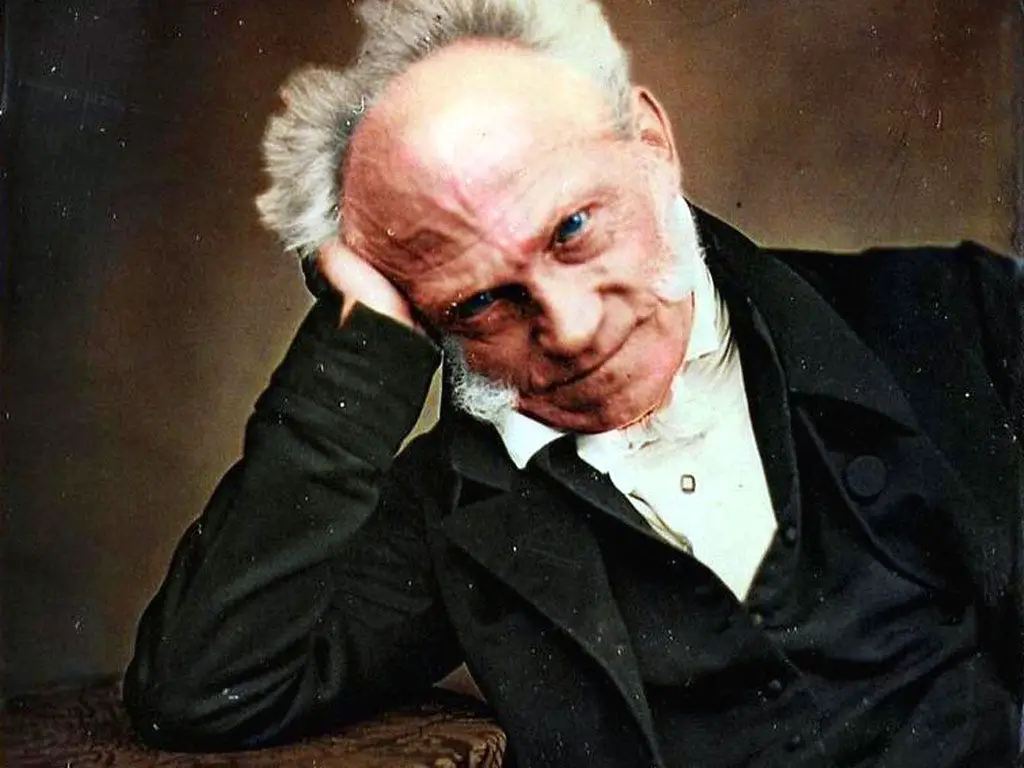Schopenhauer’s distrust of academic conventions was probably influenced by his own, mostly negative, experience with academia. In 1820, after his book The World as Will and Representation failed to kick up the storm he thought it would, the young Schopenhauer accepted a teaching position at the University of Berlin. Here, he would stubbornly schedule his courses at the same time as those taught by Georg Wilhelm Friedrich Hegel, an older and much more renowned philosopher whom Schopenhauer vehemently disagreed with.
Hegel, in Schopenhauer’s eyes, was the greatest charlatan to have ever set foot in a school, someone who wrote in an insanely complicated and highly referential style to distract readers from the faults in his thinking. Today, Hegel’s ideas have long been rejected and his writing style frequently ridiculed by both teachers and students alike. During the early 19th century, however, Hegel had effectively become the most influential philosopher in all of Europe, standing shoulder to shoulder with the poet Johann Wolfgang von Goethe.
Jealous of the recognition Hegel received from other academics, Schopenhauer could not help but start a rivalry. While Hegel was fighting administrators distressed by his progressive beliefs, Schopenhauer presented himself as apolitical in order to garner interest from the school’s recruiters. He even interrupted his own test lecture by entering into a heated — though thoroughly unnecessary — debate with Hegel, knowing full well the philosopher’s lack of support could cost him his job at the university.
Despite scheduling his courses at the same time as Hegel, Schopenhauer was unable to lure the students away from his nemesis. While Hegel lectured to an overcrowded auditorium, Schopenhauer was shocked to find that only five people had actually signed up for his course, which ironically revolved around studying The World as Will.
When, a few semesters later, his popularity among the student body had failed to improve, Schopenhauer gave up. He not only quit his teaching job at the University of Berlin but teaching in general. Using funds inherited from his merchant father, Schopenhauer was able to finance a lifetime of independent study. The texts he penned during this period, mostly supplemental chapters for The World as Will, he wrote not for wealth or status but for the sake of his own self-improvement, not knowing whether anyone but himself would ever get to read them.
Independent study
As Schopenhauer traded the classroom for his bedroom, his philosophical outlook shifted with the new surroundings. “My meditative philosophy,” he wrote in the Preface to the Second Edition of The World as Will, “has for its pole star truth alone, naked, unrewarded, unbefriended, often persecuted truth, and towards this it steers straight, looking neither to the right nor to the left.
Previously, Schopenhauer had argued that the best inquiries resulted from trusting in one’s own ability to reason. Having fully embraced the life of a hermit, he now went a step further, arguing that in order to conduct any kind of genuine inquiry into the nature of reality, you first had to remove yourself from that reality.
“Now,” Schopenhauer wrote in his essay, “On University Philosophy,” “what in the world has such a philosophy to do with that alma mater, the good, substantial university philosophy, which burdened with a hundred intentions and a thousand considerations proceeds on its course cautiously tacking… the will of the ministry, the dogmas of the established Church, the wishes of the publisher, the encouragement of students, the goodwill of colleagues, the course of current politics, the momentary tendency of the public, and Heaven knows what else?”
Again, Schopenhauer’s criticisms of academic institutions and their rigid conventions were most certainly influenced by the experiences he had with them. Still his essays, while at times shortsighted and even hypocritical, contain useful advice when it comes to navigating the academic world. As John Stewart points out in his article, “Schopenhauer’s Charge and Modern Academic Philosophy,” the concept of an institutionally employed philosopher is relatively recent. What’s more, some of the greatest thinkers in history, including Descartes and Hume, never worked with any universities but devoted themselves to independent study instead.
As for us readers, we should not always automatically believe someone just because they happen to cite a person of authority. For all we know, the citation may have been pulled out of its original context to prove a very different point, or it may be used as decoration. Reason, on the other hand, does not deceive.



